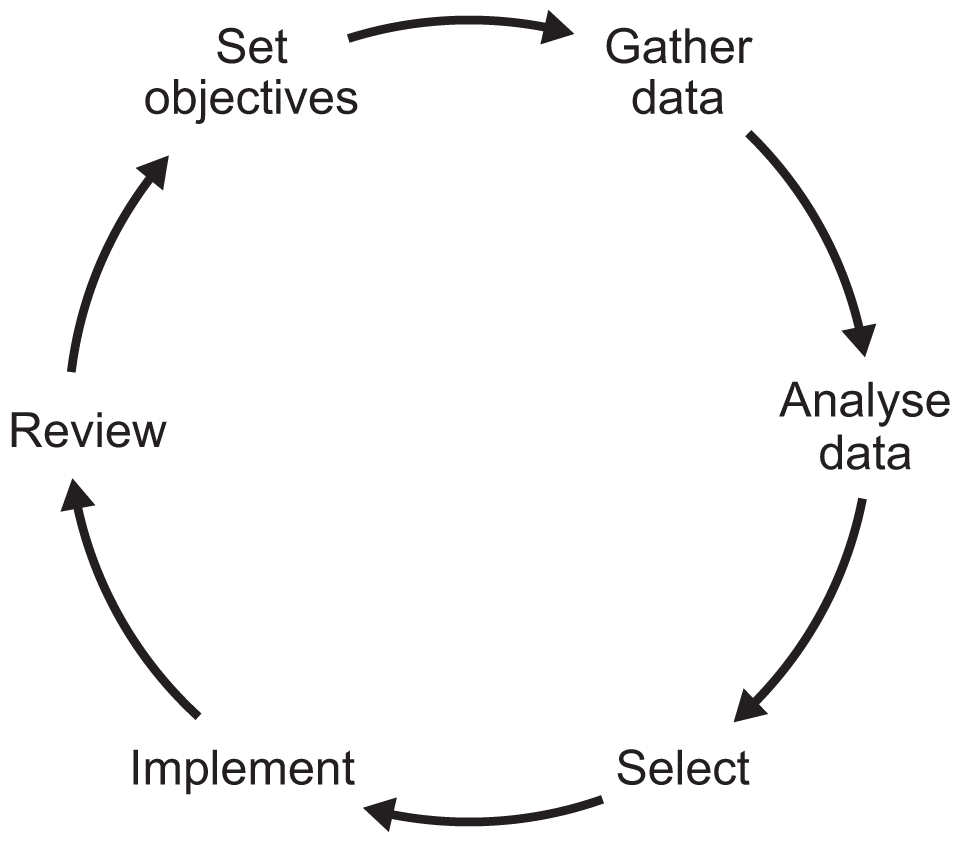Specifications that use this resource:
Teaching guide: scientific decision making
A model that highlights the different stages in a scientific, data based approach to decision making. It outlines a logical sequential process.
Model/theory

Key points
This model takes a logical and rational approach to decision making with a series of stages that follow on from each other. Decisions need to be reviewed and this might lead to a change in objectives.
When you can use this
When discussing management, leadership and decision making you might want to consider:
- the importance of objectives; all decisions have to be judged against the objectives
- the value of data (and this could lead to a discussion on what influences the reliability of data) in decision making; poor data may lead to poor decision making
- the need to make choices (and then discuss eg opportunity cost, risk, rewards )
- the importance of implementation – good management is not just making the right decision but also ensuring it is implemented effectively
- whether, in reality, decision making is this logical and whether the process is iterative – eg having gathered data do we review the objectives and possibly change them? Having selected a course of action do we sometimes have to go back and gather more data to check it is the right decision?
- you might consider why decisions go wrong. You could consider each of the stages of the process and consider the possible problems at each stage.